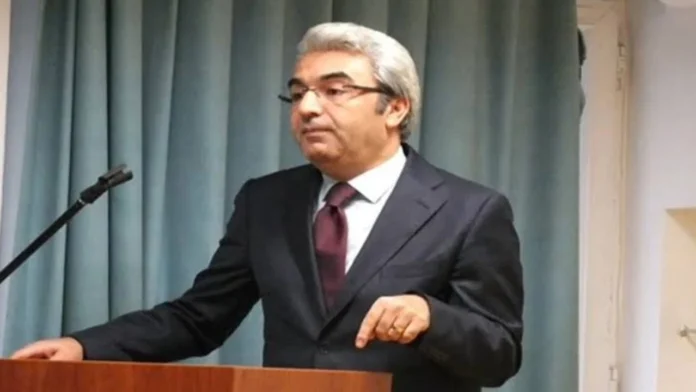Kalender Özdemir, director of investments at the opposition-run Istanbul Metropolitan Municipality (İBB), who survived a heart attack on August 22 while in pretrial detention, was sent back to jail after emergency stent surgery despite criticism from his family and rights advocates saying the move endangers his health, Turkish media reported.
After the heart attack Özdemir, previously the deputy mayor of İstanbul’s Ataşehir districtfrom the Republican People’s Party (CHP), was rushed to Mehmet Akif Ersoy Thoracic and Cardiovascular Surgery Teaching and Research Hospital in Küçükçekmece, Istanbul, where he underwent surgery. Despite his critical condition, Özdemir was sent back to Silivri Prison on Tuesday. His family was not informed of his hospitalization until Monday.
His wife, Hülya Özdemir, raised an outcry over his treatment by the authorities. “He narrowly escaped death after a heart attack in prison. Three stents were placed in his heart,” she said. “Now that weary heart is being sent back behind four walls.”Kalender Özdemir, director of investments at the opposition-run Istanbul Metropolitan Municipality (İBB), who survived a heart attack on August 22 while in pretrial detention, was sent back to jail after emergency stent surgery despite criticism from his family and rights advocates saying the move endangers his health, Turkish media reported.
After the heart attack Özdemir, previously the deputy mayor of İstanbul’s Ataşehir districtfrom the Republican People’s Party (CHP), was rushed to Mehmet Akif Ersoy Thoracic and Cardiovascular Surgery Teaching and Research Hospital in Küçükçekmece, Istanbul, where he underwent surgery. Despite his critical condition, Özdemir was sent back to Silivri Prison on Tuesday. His family was not informed of his hospitalization until Monday.
His wife, Hülya Özdemir, raised an outcry over his treatment by the authorities. “He narrowly escaped death after a heart attack in prison. Three stents were placed in his heart,” she said. “Now that weary heart is being sent back behind four walls.”
Özdemir was detained on March 11 and arrested on March 17 on charges of providing financial support to the outlawed Revolutionary People’s Liberation Party-Front (DHKP/C) between 2014 and 2016. He has been in pretrial detention for more than five months.
His arrest was part of a crackdown that targeted the İBB, its affiliated institutions and other municipalities run by members of the CHP, since the CHP scored a decisive victory in the March 2024 local elections, in which the ruling Justice and Development Party (AKP) suffered its worst electoral defeat in two decades, losing control of key cities to the opposition.
Critics called the operations, which have now expanded to encompass 17 municipalities, including major metropolitan areas such as İstanbul, Adana, Antalya and Adıyaman, the largest campaign of repression against an opposition party in decades.
Among them are 14 CHP mayors, including Istanbul Mayor Ekrem İmamoğlu, who was detained on March 19 and arrested days later on corruption charges criticized as politically motivated. His arrest, widely seen as targeting the biggest political rival to longtime President Recep Tayyip Erdoğan in the 2028 presidential election, sparked Turkey’s worst protests in decades. Imamoğlu was also suspended from office.
Since late 2024 more than 500 people linked to the party or the İstanbul Municipality have been detained or arrested on a range of charges, from terrorism to bid rigging, in what critics say is a systematic crackdown.
Human rights observers have been criticizing the authorities for politically motivated
decisions in cases involving political prisoners and for refusing to endorse medical release even when multiple medical assessments confirm that continued detention poses a life-threatening risk.
Turkish authorities have frequently been criticized for their systematic disregard of the health needs of prisoners. Every year, rights groups report the death of dozens of sick prisoners, either while behind bars or shortly after their release, which often comes at the end-stage of their illness. Turkey recorded 709 deaths in prison in the first 11 months of 2024, according to data from the Ministry of Justice shared in response to a parliamentary inquiry.















